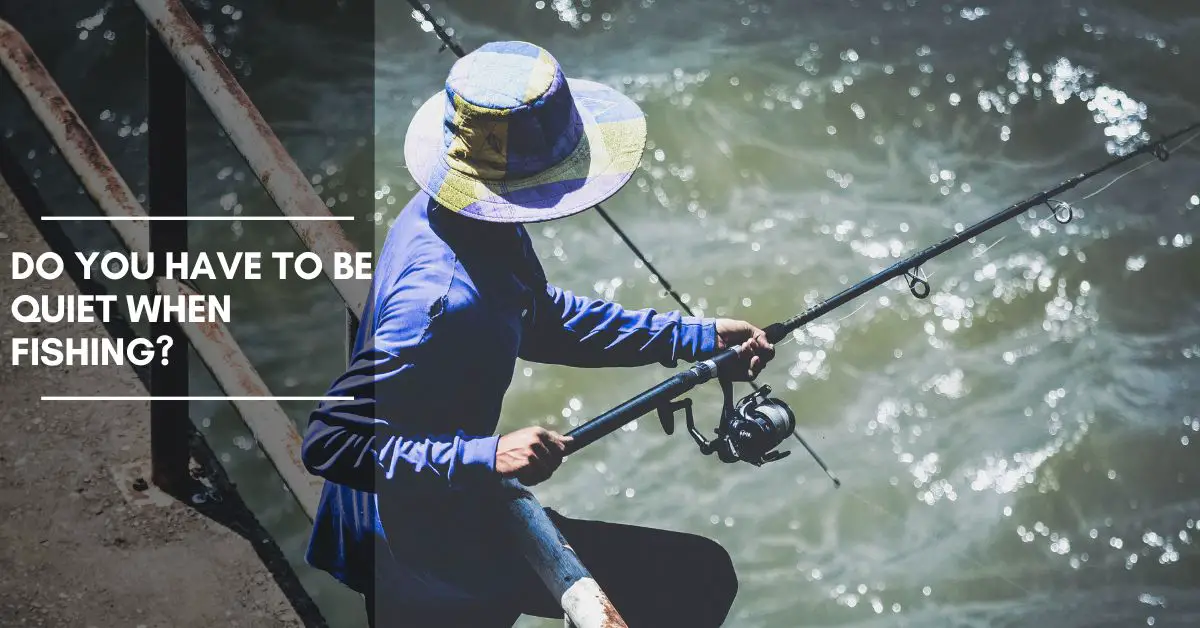Fishing is an age-old pastime that has been enjoyed by countless generations. One of the many myths surrounding fishing is the belief that you must be as quiet as possible to be successful. But is this really true?
In this article, I will delve into the relationship between noise and fishing success, discussing the factors that might affect fish behavior, and providing some practical tips for both beginners and seasoned anglers alike. If you’ve ever wondered whether keeping quiet is the key to a bountiful catch, read on to discover the answer and some valuable fishing insights.
In short, it’s not necessary to be completely silent when fishing, as fish have a different sense of hearing than humans. However, minimizing noise can improve your chances of success, depending on the circumstances and the type of fish you’re targeting.
Let’s dive deeper into the world of fishing and the role that noise plays in the experience, so you can take your angling game to the next level.
How Fish Sense Sound
The Lateral Line System
Fish have a unique sensory system called the lateral line, which runs along the sides of their bodies. This system detects vibrations, movement, and pressure changes in the water. It enables fish to navigate their surroundings, avoid predators, and locate prey.
Inner Ear Structure
In addition to the lateral line system, fish also possess an inner ear structure that allows them to hear sounds in the water. However, it’s worth noting that the hearing capabilities of fish vary greatly among species.
Factors Affecting Fish Response to Noise
Type of Fish
Some fish are more sensitive to sound than others. For example, species like bass and trout are known to be more cautious and might be more easily spooked by sudden noises.
Water Clarity
In clear water, fish can rely more on their vision to detect predators and prey. As a result, they might be less affected by noise in such conditions.
Fishing Pressure
Fish that are regularly exposed to angling pressure may become warier of noise, associating it with the presence of anglers.
Tips for Minimizing Noise While Fishing
Approach the Fishing Spot with Caution
Approach your chosen fishing spot slowly and carefully to avoid spooking the fish. This is particularly important in shallow water where fish are more likely to detect your presence.
Use Stealthy Fishing Gear
Opt for fishing gear with minimal noise, such as rubber-soled shoes, quiet reels, and rods with silent line guides.
Keep Conversations Low
While it’s not necessary to be entirely silent, keeping conversations at a low volume can be beneficial, especially when targeting more sensitive fish species.
The Benefits of Embracing Quietude
Increased Focus
Being quiet while fishing can help you pay more attention to your surroundings and improve your overall fishing experience.
Enhanced Connection with Nature
Embracing silence allows you to connect more deeply with the natural environment and appreciate the serenity of the great outdoors.
Respect for Fellow Anglers
Keeping noise levels down is not only courteous to the fish but also shows respect for other anglers who might be fishing nearby.
Conclusion
In conclusion, while it’s not essential to be completely silent when fishing, minimizing noise can improve your chances of success in certain situations. By understanding how fish sense sound and adapting your fishing techniques accordingly, you can enhance your angling experience and potentially increase your catch rate.
FAQs
- Do all fish species react the same way to noise? No, different fish species have varying sensitivities to sound. Some, like bass and trout, are more cautious and may be easily spooked by noise, while others are less affected.
- Does the type of fishing affect how quiet I should be? Yes, the type of fishing can influence how much noise matters. For example, when fly fishing, it’s essential to be more cautious and quieter due to the proximity to the fish.
- Is it better to use a quieter fishing reel? Using a quieter fishing reel can help minimize noise and potentially increase your chances of success, especially when targeting more sensitive fish species.
- Can I play music while fishing? While it’s not necessary to be entirely silent, it’s best to keep music and other distractions to a minimum, as they may disturb the fish and other anglers in the area.
- Should I avoid fishing in a noisy area? If possible, choose a fishing spot with minimal noise pollution, as excessive noise may negatively affect fish behavior and make them less likely to bite.

